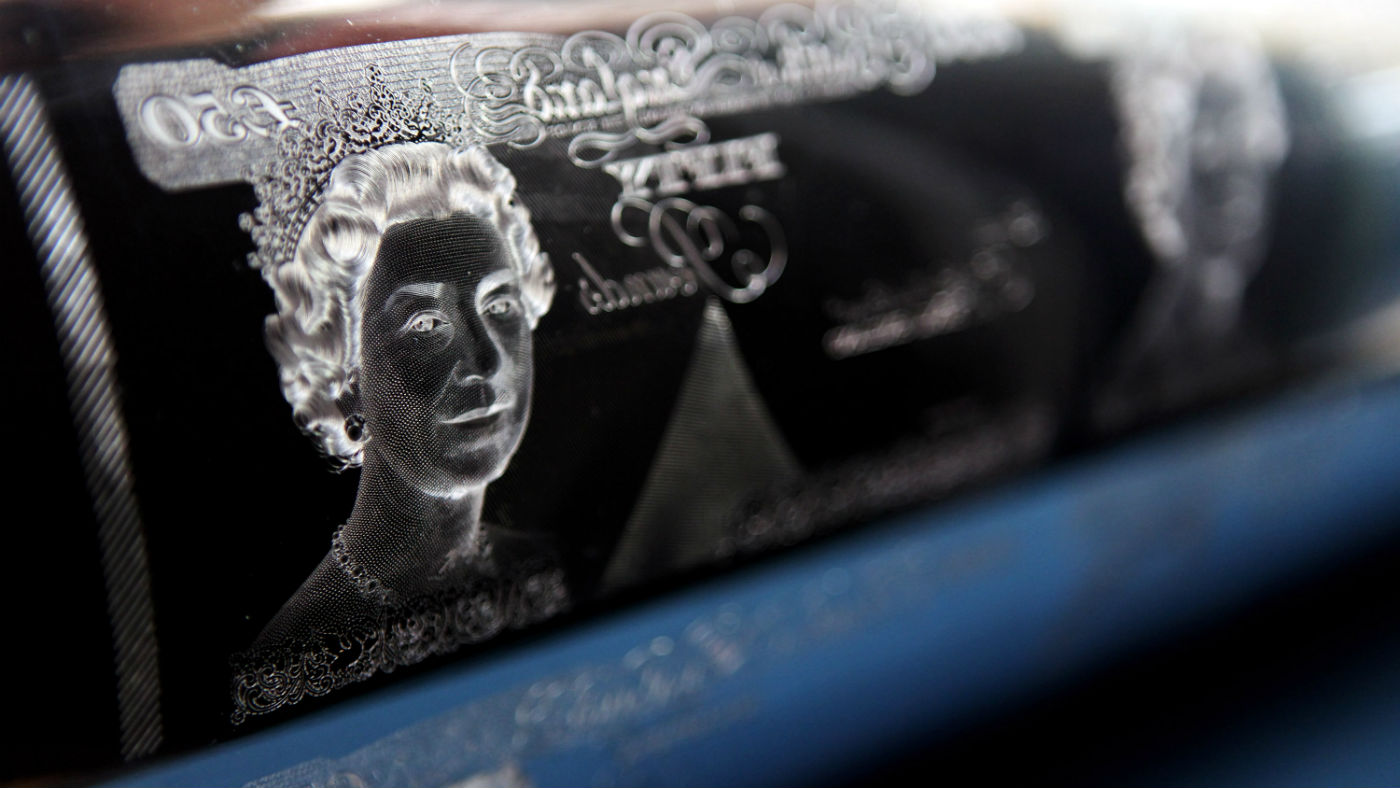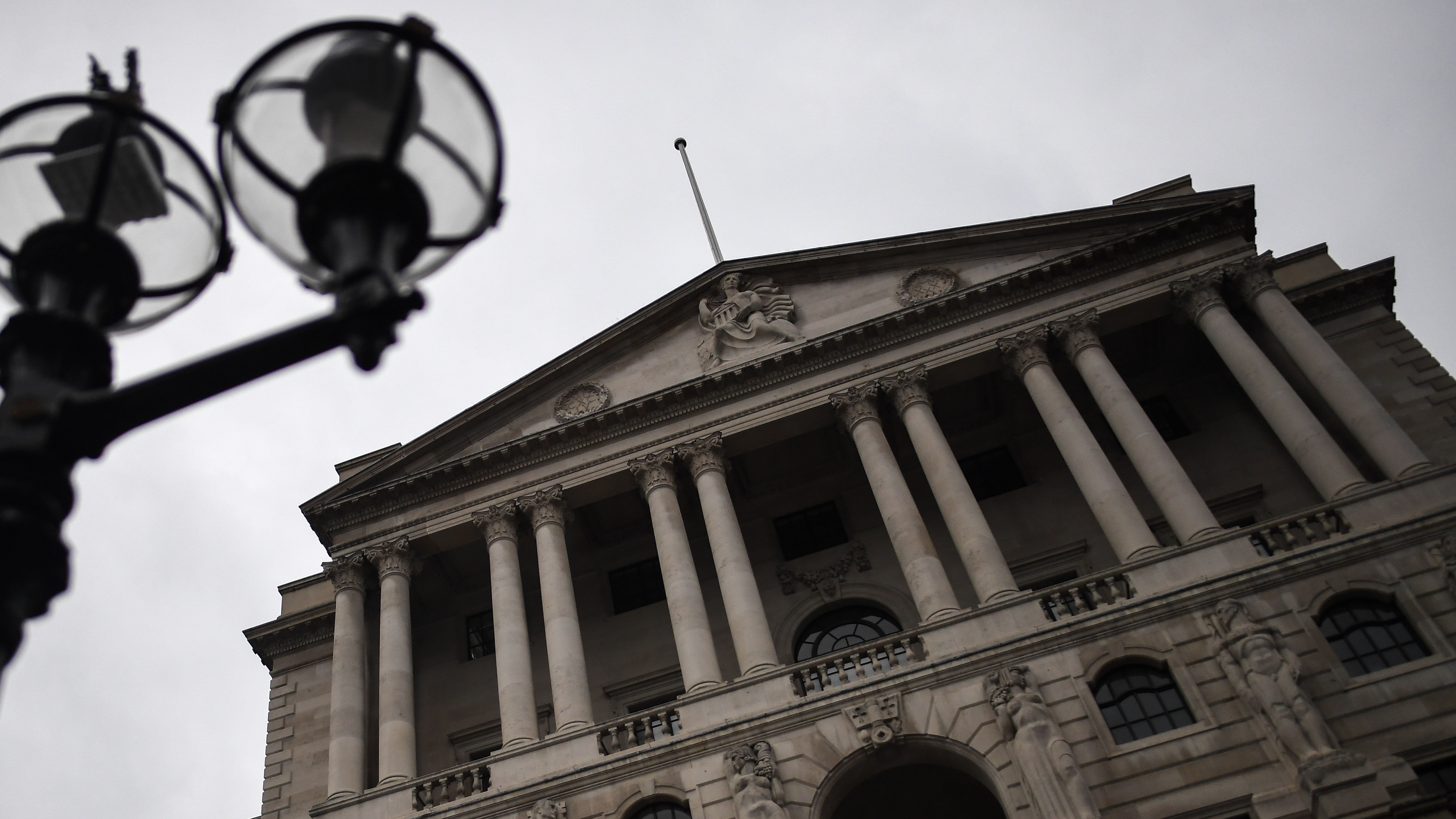£50 notes to stay despite money laundering claim
Bank of England resists calls to abolish high denomination note ‘widely used by criminals’

A free daily email with the biggest news stories of the day – and the best features from TheWeek.com
You are now subscribed
Your newsletter sign-up was successful
£50 notes will not be scrapped but instead get a polymer redesign in a bid to make them more durable and harder to forge.
The announcement by the Bank of England follows growing calls to withdraw the note altogether over fears that the UK's largest denomination was widely used by criminals and rarely for ordinary purchases.
In March, a review by the Treasury found the roughly 330 million £50 notes in circulation, with a combined total of £16.5bn, were “rarely used” for routine transactions.
The Week
Escape your echo chamber. Get the facts behind the news, plus analysis from multiple perspectives.

Sign up for The Week's Free Newsletters
From our morning news briefing to a weekly Good News Newsletter, get the best of The Week delivered directly to your inbox.
From our morning news briefing to a weekly Good News Newsletter, get the best of The Week delivered directly to your inbox.
The Treasury concluded that “there is also a perception among some that £50 notes are used for money laundering, hidden economy activity, and tax evasion”.
Peter Sands, former chief executive of Standard Chartered bank, said in a 2016 report that high-denomination notes are favoured by terrorists, drug lords and tax evaders.
Illegal money flows exceed $2 trillion (£1.4 trillion) a year, Sands said. But rather than focus on the criminals, he argued G20 countries should now target the cash itself, urging central banks to stop issuing £50, $100 and €500 notes.
Following the study, the European Central Bank announced it was to axe the €500 note, known in some circles as a “Bin Laden”, in a bid to crackdown on money laundering.
A free daily email with the biggest news stories of the day – and the best features from TheWeek.com
However, Robert Jenrick, exchequer secretary to the Treasury, has resisted a similar move
“People should have as much choice as possible when it comes to their money and we're making sure that cash is here to stay. Our money needs to be secure and this new note will help prevent crime” he said.
The decision to switch to polymer plastic notes will, however, “also raise questions over which famous Briton will feature on the reverse of the note”, says the BBC.
Steam engine pioneers James Watt and Matthew Boulton appear on the current £50, issued in 2011.
-
 Crisis in Cuba: a ‘golden opportunity’ for Washington?
Crisis in Cuba: a ‘golden opportunity’ for Washington?Talking Point The Trump administration is applying the pressure, and with Latin America swinging to the right, Havana is becoming more ‘politically isolated’
-
 5 thoroughly redacted cartoons about Pam Bondi protecting predators
5 thoroughly redacted cartoons about Pam Bondi protecting predatorsCartoons Artists take on the real victim, types of protection, and more
-
 Palestine Action and the trouble with defining terrorism
Palestine Action and the trouble with defining terrorismIn the Spotlight The issues with proscribing the group ‘became apparent as soon as the police began putting it into practice’
-
 Are UK pensions safe?
Are UK pensions safe?Today's Big Question Bank of England governor says its debt market support must end – but the multi-billion-pound scheme could be extended
-
 When will paper £20 and £50 notes expire?
When will paper £20 and £50 notes expire?Business Briefing Old notes will soon be taken out of circulation by the Bank of England
-
 What is inflation and why is it so high?
What is inflation and why is it so high?feature Smaller petrol price increases mean inflation has dipped slightly – but it remains in double digits
-
 Brits keeping 21 million ‘money secrets’ from friends and family, survey reveals
Brits keeping 21 million ‘money secrets’ from friends and family, survey revealsSpeed Read Four in ten people admit staying quiet or telling fibs about debts or savings
-
 Negative interest rates explained: how your finances could be affected
Negative interest rates explained: how your finances could be affectedIn Depth Money experts share their views and advice
-
 London renters swap cramped flats for space in suburbia
London renters swap cramped flats for space in suburbiaSpeed Read New figures show tenants are leaving Britain's cities and looking to upsize
-
 Should the mortgage holiday scheme have been extended?
Should the mortgage holiday scheme have been extended?Speed Read Banks warn that some homeowners may struggle to repay additional debt
-
 RBS offers coronavirus mortgage holidays
RBS offers coronavirus mortgage holidaysSpeed Read Taxpayer-owned bank follows measures taken in virus-struck Italy